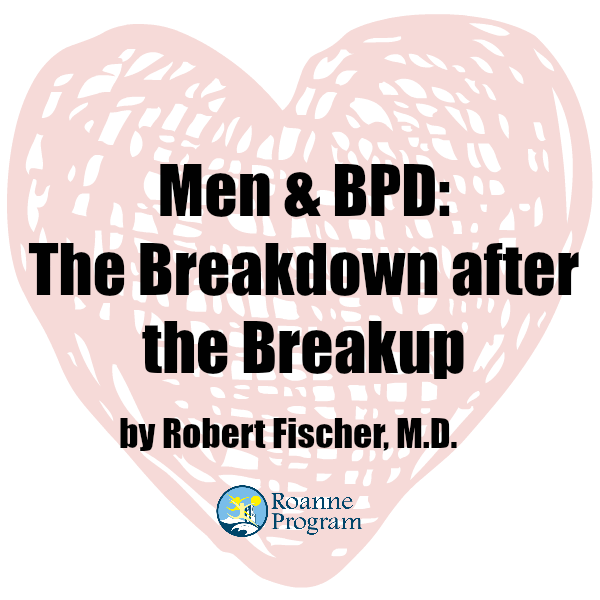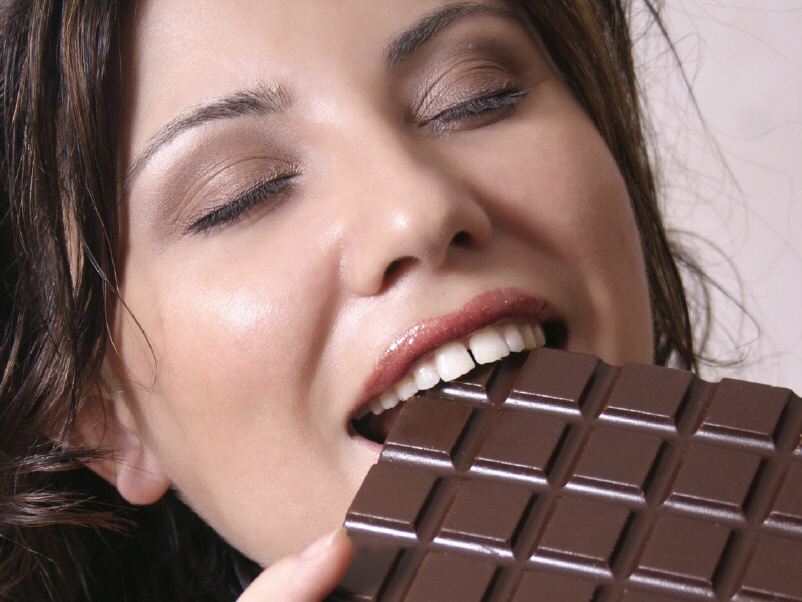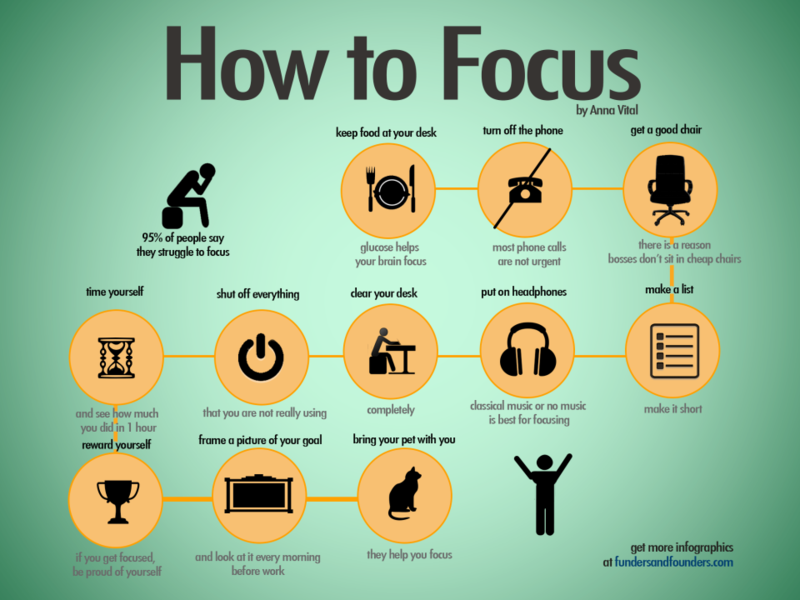Overcoming food addiction
How to Overcome Food Addiction: The Best Solutions
We all know how delicious junk foods, ice cream, or processed foods are. They are called comfort foods for a reason, and you can easily get addicted to them. But did you know that these comfort food have certain effects on the brain that make it hard for other people to avoid them?
The scary part is that food addiction is similar to substance abuse disorders or drug addiction. It is real, and it’s a hard habit to break, no matter how hard some people try. This article is all about food addiction and how to overcome it.
What Is Food Addiction?
Food addiction is defined as unhealthy habits or addiction to junk foods (for example, ice cream, foods high in fat, chips, or sugary drinks). Evidence shows it is similar to other eating disorders like compulsive overeating and binge eating disorder. This explains why many people with food addiction find it hard to adhere to healthier diets. They may develop obesity for this reason.
The Science Behind Food Addiction
Food addiction, as mentioned earlier, is thought to be similar to drug addiction. What is the science behind this? It was found that the neurotransmitters in the brain of persons with a substance abuse disorder are the same neurotransmitters that affect people with food addiction.
Processed foods have negative effects on the reward centers of the brain. These effects are the responsibility of the neurotransmitter called dopamine. Food addiction is a combination of lacking the willpower to control oneself to eat junk foods and the dopamine process in the brain.
Symptoms of Food Addiction
There are no blood tests or laboratory exams that can diagnose the existence of food addiction. Like other addiction disorders, the diagnosis of food addiction is based on the person’s behaviors. Here are the symptoms of food addiction:
- Frequent food cravings despite being full
- Eating big servings of the craved food much more than the intended serving (e.
g., telling yourself to drink just one glass of soda but ending up drinking the whole bottle in one sitting)
- Eating certain foods up to the point that you are excessively full or about to throw up.
- Feeling guilty after overeating but excessively eats again
- Making excuses why giving in to a food craving is a good idea. (using stress, monthly period, or food as a reward as an excuse to give in to their food craving)
- Repeatedly trying to quit food addiction but is unsuccessful in doing so
- Hiding from others when eating unhealthy foods or hiding certain foods from their partner or family
- Finding it hard to control themselves from eating unhealthy foods despite knowing the negative consequences caused by food addiction (e.g., weight gain, obesity, heart disease)
Can you relate to at least four signs above? You should start to worry about having a food addiction. But if you have six signs or above, go seek professional help because it’s most likely food addiction.
Tips for Overcoming Food Addiction
Food addiction recovery will take a lot of willpower and sacrifice to overcome. It may take weeks or months, but you have to believe in yourself to overcome it. Everybody has different food cravings, and breaking a food addiction is going to be different for everyone. But here are some tips you can start with:
1. Make a List (or Two or Three)
Start to change your lifestyle by writing a list and coming up with a plan. Get a notebook, journal, or notepad and write your lists there.
- List down your personal goals (how to overcome food addiction, weight loss goals, how you can avoid your junk food triggers, how to boost your self-esteem, if you need treatment, or become just overall healthy)
- Create a list of the unhealthy foods, addictive foods, or meals you should avoid.
- Write down the fast food places you should avoid or healthy restaurants you can eat in within your area.
- Make a list of the healthy foods you can eat.
Every time you have a craving or want to eat, look at these lists. Look at the foods or fast food chains you must avoid and the choices of healthy foods you can eat. Make it a habit to check your list every day so you will be reminded of your goals.
It is important to remember not to go on a restricted diet for at least 1–3 months if you’re on the journey of recovery from food addiction. Overcoming food addictions is already hard enough. Adding diet restrictions and hunger will make the recovery process even harder.
2. Avoid Alcoholic Drinks and Caffeine
As much as you can, avoid alcoholic drinks and caffeinated beverages (coffee, hot chocolate, or soda). Evidence shows that drinking alcoholic or caffeinated beverages triggers poor eating choices.
Coffee can cause the body to crave sugary drinks or sweet foods. In addition, too much caffeine can cause anxiety, and an anxious person may end up resorting to binge-eating comfort foods to feel better.
Drinking alcohol may also cause you to become hungry. After a night of drinking or bar-hopping with friends, eating whatever you see on the fridge, even junk food, seems like a good idea. Alcohol causes poor judgment in many people, so this can destroy your recovery.
Also, avoid soda because it has addictive substances and high sugar content. Don’t make it a part of your everyday life to consume sugar because this can trigger addiction in your brain.
3. Eat Mindfully
Mindful eating means being conscious of everything that you eat. It means being mindful of how much sugar or calories is in the food. Being mindful makes you conscious to think twice before eating anything.
For example, did you know that one donut contains about 190–300 calories? This is equivalent to the number of calories you’ll lose on a 20-minute jog on the treadmill.
A donut also provides empty calories. It barely contains vitamins or nutrition. Be mindful of what you eat because all of your food choices either affect your body negatively or positively.
4. Eat Clean and Healthy Foods
If you want to overcome food addiction, your goal is to avoid eating unhealthy meals and cravings for addictive foods. So if you can’t eat high-sugar, high-fat, or highly addictive food, it makes sense that you should start eating healthy. This doesn’t mean, though, that you have to buy everything in the supermarket that contains low-sugar or fat-free foods because, in reality, they have sweeteners that have far more negative effects.
Start eating healthy by resorting to something fresher, like fruits, vegetables, grass-fed meats, and maybe something organic. Once your body gets used to not eating junk food or anything high-sugar or high-fat, you will see that you won’t be having those unhealthy food cravings anymore. Also, don’t forget to drink lots of water.
5. Exercise Regularly
As soon as you’ve decided to start eating healthy, pair it with exercising regularly. Why? When you’re experiencing pain when exercising, it will make you realize how much effort you’ve put into burning the calories of that one donut that you ate.
So the next time you get tempted to eat that donut, just remember how difficult it is to exercise. Not only will you feel good exercising, but you could also lose weight. After you’ve overcome your food addiction, set a personal goal of how much weight you want to lose.
6. Overcome Food Addiction with a Friend or Family
It’s nice to know that you’re not alone in your battle against food addiction. Reach out to family and friends to help you get through with it. If you ask your family to do this with you, you can all agree not to buy junk food in your house anymore.
It also helps if you reach out to your friends so the next time you hang out and have lunch, you’d pick a healthy restaurant rather than a fast-food chain. It’s also nice to have a friend watching out for what you eat. It may be annoying, but you know it’s for your own good.
You can also share recipes for healthy meals and cook healthy foods for one another. Going on a diet is much easier if you have a support system helping you overcome food addiction. You can even exercise together.
7. Prepare Your Body for Withdrawal Symptoms
Changing lifestyle and stopping eating junk foods may cause withdrawal symptoms. You should prepare yourself for this. Symptoms of food addiction withdrawal are anxiety, feeling down, mood swings, and anti-social behavior.
By being aware that you may experience this, you can take control of yourself and recognize the symptoms. It can also help if you seek support from a mental health professional when you experience these withdrawal symptoms.
8. Consider Seeking Professional Help
Like any other form of addiction, seeking treatment from a mental health professional can be helpful in the long run. You can also join support groups that are experiencing food addiction. It’s easier to talk to people who make us feel comfortable and can relate to what we experience.
The Key Takeaway
Food addiction is a problem that does not go away on its own. You need to treat it by starting within yourself because if you don’t, it may worsen over time. Consider seeking support from a mental health professional.
You don’t have to fight this journey alone. Help is always available if you look for it.
You can book an appointment for online mental health counseling at Kentucky Counseling Center. Our experts can help you overcome your food addiction and teach you how to replace it with healthier habits.
How to Overcome Food Addiction
The effects of certain foods on the brain make it hard for some people to avoid them.
Food addiction operates similarly to other addictions, which explains why some people can’t control themselves around certain foods — no matter how hard they try.
Despite not wanting to, they may repeatedly find themselves eating large amounts of unhealthy foods — knowing that doing so may cause harm.
This article examines food addiction and provides tips to overcome it.
Food addiction is an addiction to junk food and comparable to drug addiction.
It’s a relatively new — and controversial — term, and high quality statistics on its prevalence are lacking (1).
Food addiction is similar to several other disorders, including binge eating disorder, bulimia, compulsive overeating, and other feeding and eating disorders.
SUMMARYFood addiction is a highly controversial concept, though most studies suggest it exists. It works similarly to drug addiction.
Food addiction involves the same areas of the brain as drug addiction. Also, the same neurotransmitters are involved, and many of the symptoms are identical (2).
Processed junk foods have a powerful effect on the reward centers of the brain. These effects are caused by brain neurotransmitters like dopamine (3).
The most problematic foods include typical junk foods like candy, sugary soda, and high fat fried foods.
Food addiction is not caused by a lack of willpower but believed to be caused by a dopamine signal that affects the biochemistry of the brain (4).
SUMMARYFood addiction is thought to involve the same neurotransmitters and areas of the brain as drug addiction.
![]()
There is no blood test to diagnose food addiction. As with other addictions, it’s based on behavioral symptoms.
Here are 8 common symptoms:
- frequent cravings for certain foods, despite feeling full and having just finished a nutritious meal
- starting to eat a craved food and often eating much more than intended
- eating a craved food and sometimes eating to the point of feeling excessively stuffed
- often feeling guilty after eating particular foods — yet eating them again soon after
- sometimes making excuses about why responding to a food craving is a good idea
- repeatedly — but unsuccessfully — trying to quit eating certain foods, or setting rules for when eating them is allowed, such as at cheat meals or on certain days
- often hiding the consumption of unhealthy foods from others
- feeling unable to control the consumption of unhealthy foods — despite knowing that they cause physical harm or weight gain
If more than four to five of the symptoms on this list apply, it could mean there’s a deeper issue. If six or more apply, then it’s likely a food addiction.
SUMMARYThe main symptoms of food addiction include craving and binging on unhealthy foods without being hungry and an inability to resist the urge to eat these foods.
Though the term addiction is often thrown around lightly, having a true addiction is a serious condition that typically requires treatment to overcome.
The symptoms and thought processes associated with food addiction are similar to those of drug abuse. It’s just a different substance, and the social consequences may be less severe.
Food addiction can cause physical harm and lead to chronic health conditions like obesity and type 2 diabetes (5).
In addition, it may negatively impact a person’s self-esteem and self-image, making them unhappy with their body.
As with other addictions, food addiction may take an emotional toll and increase a person’s risk of premature death.
SUMMARYFood addiction increases the risk of obesity and type 2 diabetes.
Excessive weight may also affect a person’s self-esteem.
Completely avoiding junk foods may seem impossible. They’re everywhere and a major part of modern culture.
However, in some cases, entirely abstaining from certain trigger foods can become necessary.
Once the firm decision to never eat these foods again is made, avoiding them may become easier, as the need to justify eating — or not eating — them is eliminated. Cravings may also disappear or decrease significantly.
Consider writing a list of pros and cons to think through the decision.
- Pros. These may include losing weight, living longer, having more energy, and feeling better every day.
- Cons. These may include not being able to eat ice cream with family, no cookies during the holiday season, and having to explain food choices.
Write everything down — no matter how peculiar or vain it may seem. Then compare the two lists and ask if it’s worth it.
If the answer is a resounding “yes,” be assured that it’s the right decision.
Also, keep in mind that many of the social dilemmas that may show up in the con list can often easily be solved.
SUMMARYTo overcome food addiction, a person should be sure that eliminating certain foods is the right thing to do. If there’s uncertainty, writing down the pros and cons may help make the decision.
A few things can help prepare for giving up junk foods and make the transition easier:
- Trigger foods. Write down a list of the foods that cause cravings and/or binges. These are the trigger foods to avoid completely.
- Fast food places. Make a list of fast food places that serve healthy foods and note their healthy options. This may prevent a relapse when hungry and not in the mood to cook.
- What to eat. Think about what foods to eat — preferably healthy foods that are liked and already eaten regularly.
- Pros and cons. Consider making several copies of the pro-and-con list. Keep a copy in the kitchen, glove compartment, and purse or wallet.
Additionally, don’t go on a diet. Put weight loss on hold for at least 1–3 months.
Overcoming food addiction is difficult enough. Adding hunger and restrictions to the mix is likely to make things harder.
After taking these preparatory steps, set a date in the near future — like the coming weekend — from which point onward the addictive trigger foods won’t be touched again.
SUMMARYTo overcome food addiction, it’s important to plan. Make a list of trigger foods and know what is going to be eaten instead.
Most people with addiction attempt to quit several times before they succeed in the long run.
While it’s possible to overcome addiction without help — even if it takes several tries — it can often be beneficial to seek help.
Many health professionals and support groups can aid in overcoming your addiction.
Finding a psychologist or psychiatrist who has experience in dealing with food addiction can provide one-on-one support, but there are several free group options available as well.
These include 12-step programs like Overeaters Anonymous (OA), GreySheeters Anonymous (GSA), Food Addicts Anonymous (FAA), and Food Addicts in Recovery Anonymous (FA).
These groups meet regularly — some even via video chat — and can offer the support needed to overcome addiction.
SUMMARYConsider seeking help for food addiction. Try support groups like Overeaters Anonymous or book an appointment with a psychologist or psychiatrist who specializes in food addiction.
Food addiction is a problem that rarely resolves on its own. Unless a conscious decision to deal with it is made, chances are it will worsen over time.
The first steps to overcoming the addiction include listing the pros and cons of quitting trigger foods, finding healthy food alternatives, and setting a fixed date to start the journey toward health.
Consider seeking help from a health professional or free support group. Always remember that you’re not alone.
Editor’s note: This piece was originally reported on July 30, 2017. Its current publication date reflects an update, which includes a medical review by Timothy J. Legg, PhD, PsyD.
Why am I eating this? How to Overcome Food Addiction
Most of the inhabitants of megacities suffer from food addiction to one degree or another: our life is too conducive to this. We have long ceased to use food only as a source of energy. A not very physically active modern person consumes much more calories than he spends. Food is used by us as a substitute for communication, vivid emotions, and even sex.
The law “the more harmful, the tastier” works largely thanks to the efforts of technologists, various flavor enhancers and substitutes for everything natural that should be in products. All of these enhancers affect the opioid-dopamine system in our brain and contribute to the formation of addiction - which is why sometimes you want “something harmful” so much.
Our taste buds are depleted from such a chemical attack, the body receives less useful substances and intensively accumulates toxins. Hence chronic fatigue, depressed mood and the desire to stimulate yourself in a proven way: food.
How to overcome this food addiction and help your body to gradually get rid of accumulated toxins? We asked our expert, functional nutrition specialist Mikhail Gavrilov, to give his recommendations.
Distinguish between hunger and appetite
Hunger is the body's physiological need for nutrients. It is manifested by discomfort in the body: rumbling in the stomach, a feeling of suction, headache, dizziness, nausea, and so on. Appetite is the desire to get positive emotions from food or neutralize negative ones, the desire to relieve fatigue with food, drown out the feeling of loneliness, anxiety.
Appetite can be caused by our analyzers - eyes, ears, nose, tactile and taste buds, when we see food (including in advertising), hear someone eating with appetite, feel the aroma of the dish, finally, we eat and do not we can stop. Appetite can also arise as a result of a reaction to the prohibition: we know that the product is harmful, but this makes it even more attractive.
When a person is hungry (we scan our body and find uncomfortable sensations), only food can help him. When there is an appetite, you need to be distracted, relax, find pleasant entertainment. It is important to remember: the appetite is quenched not only by food.
Learn to deal with chronic stress
Stress is one of the main causes of food addiction. That is why the prevention of stress and work with already existing stressful tensions is the main task of a person who would like to eat right, without emotional breakdowns.
Set aside at least half an hour a day to relieve stress. Effective tools for dealing with stress are body treatments (massages, spas), educational kinesiology exercises, meditation practices, yoga, physical exercises and any creative activity - from drawing to needlework.
Imagine that you have a beautiful black grand piano at home, and you have to dust it every day, otherwise it will turn gray in a week or two. It’s the same with stress – taking care of yourself every day will help you resist it and stay in shape.
Build boundaries with society
Don't let loved ones, friends, colleagues and strangers manipulate you when you strive to get rid of your food addiction. Do not go to visits, to banquets, to the supermarket on an empty stomach. Firmly push away the product that doesn’t suit you - say “no” to yourself. In a restaurant, feel free to leave some of the food on your plate (even if you were told as a child that it was indecent).
Make your loved ones your allies in a healthy diet and lifestyle, consistently stop their "provocations" to feed you sweets or cakes. Remember, kindness and gentleness are not the same thing. Don't try to be nice to everyone, stand up for your boundaries, because it's about your health.
Seek professional help
See a nutritionist if you feel like you can't manage on your own and you still get frustrated - eat too much, can't switch to a healthier diet.
Strong addictions are often caused by genetic characteristics - a violation of the production of neurotransmitters or "breakage" of receptors for them. Modern psychophysiology has effective technologies that can reduce food addiction in a short time.
Special brain diagnostics and individually prescribed amino acid therapy help, without antidepressants and other chemicals, to influence the activity of parts of the brain responsible for overeating.
Audiovisual stimulation combined with Ericksonian therapy reduces anxiety overeating, which is so common among residents of large cities.
Causes and types of food addiction
-
What is food addiction?
-
Causes of food addiction
-
Types of food addiction
-
7 signs of food addiction
-
Do you suffer from food addiction?
-
How to get rid of food addiction?
About the fact that alcohol is evil, and a drop of nicotine kills a horse, we have been hearing since childhood. Gambling addiction and shopaholism (an uncontrollable desire to buy whatever you like) are much less commonly spoken about. There is another psychological addiction that not everyone knows about, but it does not become less serious from this. This is food addiction.
According to the observations of specialists, only 20% of people suffering from such a disorder can get rid of it on their own. Others cannot do without the help of a nutritionist, psychologist, and in some cases a psychiatrist.
The enemy must be known by sight! Consider food addiction in detail.
What is food addiction?
Food is the fuel that is necessary for the normal functioning of all systems of the human body. It can be tasty, healthy and not very, sometimes frankly harmful. Eating not only satisfies the feeling of hunger, but also pleases the taste buds - soothes, improves mood.
All this is good exactly until the moment when a pathological dependence on food arises - a condition in which a person eats not because he is hungry. Thus, he tries to drown out disturbing thoughts, overcome strong excitement, seize problems at work, in his personal life, and his own complexes. Food becomes the highest value. Other pleasures recede to the second, third, fourth, etc. plan. A person does not even try to solve his problems, resorts to a proven and reliable method - uncontrolled food intake.
The basis for food addiction (addiction) is positive emotional reinforcement: while eating, a person feels a surge of positive emotions, experiences physical pleasure.
Causes of food addiction
Like any other addiction, food does not arise from scratch. What can cause it to appear:
-
Genetic predisposition. In the course of research, scientists have found that the obesity gene FTO controls the feeling of hunger, which is associated with the production of ghrelin and leptin, hormones responsible for satiety. If the level of hormones is high, a person quickly fills up.
If they are in short supply, saturation does not occur immediately after lunch, but 30-40 minutes later. During this time, you can eat a lot of excess or constantly snack.
-
Brain stimulator. Sugar and sugar-containing products act on the brain, or rather, on the pleasure centers in it, just like alcohol or drugs. It is very difficult to voluntarily give up such a powerful stimulant. Moreover, the memories are still fresh that it is not possible to get a mammoth for dinner every evening, which means that you need to eat up in reserve.
-
Force of habit. A person learns a lot in childhood. Including eating habits. From family traditions often depends on his diet in adulthood. Very often, caring mothers and grandmothers make them eat everything to the last crumb, or, trying to please, they offer the child everything he wants - sausages, dumplings, hamburgers or french fries - just so that the child eats. Abundant feasts can alternate with punishments in the form of deprivation of lunch or sweets, which also stimulates eating disorders.
-
In the power of emotions. To a greater extent, this applies to people with a fine mental organization, a sensitive nervous system, who tend to look at the world pessimistically, or those who have experienced psychological trauma. Humans have a sympathetic and parasympathetic nervous system. The first is responsible for mobilizing resources in times of danger - for example, in a stressful situation. Blood rushes to the lungs, the brain, which helps to effectively solve the problem. The second is included in the work at rest, shifting the focus to the stomach, intestines. In anxious, suspicious people, the sympathetic system is constantly on full alert. After a hearty meal, they forcibly switch her attention to digestion. Immediately becomes calmer, the anxiety goes away. One has only to fix this connection “I ate properly - it became good”, and the food addiction is ready.
-
Public opinion . Media, social networks, fashion blogs broadcast certain standards of beauty, as a rule, far from what can be considered normal, healthy.
Trying to squeeze himself into the imposed framework - artificially created standards of beauty, a person becomes a victim of public opinion - he begins to seize his imperfection.
Types of food addiction
Eating disorders can take the form of bulimia, compulsive and binge eating, anorexia nervosa, orthorexia (addiction to healthy foods). Food addictions include compulsive overeating and bulimia. What is typical for them:
-
Compulsive overeating is painfully familiar to many uncontrolled gluttony. Once you start eating, you just can't stop. He doesn't feel hungry. All his thoughts are occupied only with food. The only thing that drives him is the desire to eat. He can hide from everyone and continue to absorb an incredible amount of food. And then - when he finally stops, he will burn with shame for his gluttony, suffer because of guilt for not being able to control himself.
-
Bulimia is similar to compulsive overeating, but only in its first phase.
The absorption of a huge amount of food is followed by the second phase of this attack - the release of what has been eaten. Methods can be different - induce vomiting, make an enema, take a laxative. The main thing is to cleanse the body of everything that has entered there.
Systematic overeating leads to rapid weight gain. But this does not bother the addict at all: the main thing for him is the pleasure of eating. In the case of bulimia, on the contrary, a person is afraid of getting fat, so he gets rid of the contents of the gastrointestinal tract in all possible ways. The consequences can be even more severe: the digestive system fails, metabolic failures begin, the intestinal microflora is disturbed, the acidity of gastric juice changes, teeth, skin, and hair deteriorate.
7 signs of food addiction
Food addiction develops gradually and makes itself felt with symptoms similar to those of alcohol, drug, nicotine and other addictions:
-
Loss of control.
It does not matter to a person - what to eat, when to eat, why to eat. The main thing is to eat.
-
There is no reason not to eat. You can promise yourself to go on a diet, give up unhealthy fast food, introduce time limits - for example, do not eat after 6:00 pm, but at the same time find a wonderful excuse not to keep this promise. And the reason for the breakdown can be anything. Feeling sad, someone flunked the exam, bought a car or got a diploma - you need to urgently throw a feast!
-
Drug products. As a rule, addicts prioritize foods that are, to put it mildly, unhealthy, with a high glycemic index. They stimulate the synthesis of dopamine and deliver more pleasure than healthy foods. And most often at home there is a supply of these food "drugs".
-
Mandatory guilt. When the next attack of gluttony is left behind, the addict is tormented by guilt. He promises himself not to do this again and will certainly get rid of a bad habit.
-
There is "under the pillow." In public, an addict can remain calm, control himself, crunching a lettuce leaf, although he would gladly “sharpen” a couple of cutlets. At home, when no one sees, he is ready to eat the entire contents of the refrigerator.
-
All thoughts are about her. A person with food addiction can only think about food: what he will cook, how he will do it, how he will taste when he eats it. Unable to last home, he can go to the nearest cafe to have a bite to eat.
-
Do not think about harm to health. Addicts are driven only by the thought of food. He does not remember how gluttony is unhealthy, he does not care about critical blood sugar levels or hard-to-fasten buttons on his trousers.
Do you suffer from food addiction?
If you have vague doubts about your relationship with food, try taking a mini-quiz and determine how serious it is:
-
Even if you are already full, you cannot stop.
-
You often overeat. Why deny yourself pleasure?
-
You love to eat alone. Witnesses are useless!
-
It pisses you off when someone criticizes your eating habits and cravings.
-
You eat at any time of the day. Dinner at 10pm? The usual thing!
-
Sharing your food with loved ones is not about you.
-
You realize that you eat a lot, and every time you promise yourself to reduce the portion size.
-
After another raid on the refrigerator, you are haunted by guilt.
If you can agree on at least three of the proposed points, you should seriously think about your eating behavior and at least consult with a specialist.
How to get rid of food addiction?
The first and most important step on the path to recovery is to recognize that there is a problem. As long as you refuse to consider yourself addicted, you will continue to empty the refrigerator, gain weight, endure pangs of conscience and break down again every time.













